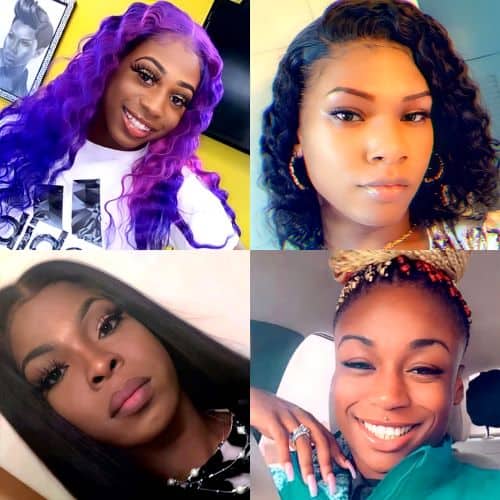
By: Dennis Richmond, Jr. (@NewYorkStakz)
Brayla Stone, Bee Love Slater, Muhlaysia Booker, and Merci ‘Pooda’ Mack Richey are all pictured above. All of them are Black, and all of them are trans. A trans woman is a woman who was assigned male at birth. The “T” in LGBTQIA+ stands for transgender. Brayla, Bee Love, Muhlaysia, and Merci share something else in common besides race and gender identity. All four of them are deceased.
There’s a trend that’s sweeping across America, and people need to know about it. Teenage trans girls and trans women are being murdered at unprecedented rates. Many of the trans girls and trans women are dying at the hands of adolescent boys and men. From Florida to Arkansas and Texas to Pennsylvania, trans girls and trans women are being bullied, beaten, and brutally slain.
We need to protect teenage trans girls and trans women. Brayla Stone’s murder in Sherwood, Arkansas, occurred in June of last year. Her body was found in a car after she had been shot to death. Brayla will never have the chance to see her 18th birthday because she was murdered at 17 years old. Bee Love Slater’s death occurred in Clewiston, Florida, in September of last year. She was found in a burning vehicle, and it took several days before her body was able to be identified. Bee Love was 23 years old.
Muhlaysia Booker’s killing happened in Dallas, Texas, in May of 2019. She was assaulted in April of 2019. People not only stood and watched the assault, but they also recorded it and shouted transphobic slurs. In May of 2019, she was found dead on arrival. Her cause of death was a gunshot wound. Muhlaysia was 22 years old. Merci ‘Pooda’ Mack Richey’s murder in Dallas, Texas, occurred in June of last year. She was shot to death at an apartment complex. Her body was found in a Dallas parking lot with a gunshot wound to the head. Merci was 22 years old.
These stories are heartbreaking. Brayla, Bee Love, Muhlaysia, and Merci, were four of hundreds of trans teenage girls and trans women who were murdered within the past two years. These girls were robbed of the opportunity to live a full and happy life.
People may want to know more about the trans experience. What is it like for a young Black trans woman in America? For that, we can listen to the wisdom of Lavi Odijé. Navigating the world with proud Haitian, Bohemian, and African ancestry, Lavi Odijé is a kindhearted spiritualist. The 24-year-old trans woman who lives in New York has in-depth knowledge of the situation at hand. She agreed to this interview, and it is a privilege to share a portion of it with readers.
Dennis: Why do these men act the way they do towards trans teenage girls and trans women?
Lavi: There are three reasons why these men act out towards the girls. One, the women in their lives are nasty about trans women. Two, there were wounded men that raised these men. And three, because of broader society; school, social networks, and their community.
Dennis: What can people do to understand trans people better?
Lavi: Respect us. If you expect respect, that person is expecting the same thing. Learn how to have human decency.
Dennis: Being a Black trans woman, are you ever scared when you go outside?
Lavi: Sometimes, depending on where I go. Certain parts of Harlem or Brooklyn. For many people, ballroom is a safe space to be themselves. They can be free without judgment and express their gender identities.
Dennis: What advice do you have for young trans girls?
Lavi: Don’t let what people feel about you cause you to look at yourself differently. I see you. I know you. I love you. I know you don’t know me, and I know you don’t know about my life, but I know you. People don’t like you because people have never seen someone like you before—someone to be so free.
You’ll always be able to be free in your community. Be friends with other trans girls. Walk with each other, talk to each other about everything, and make sure you always have something to protect yourself.





